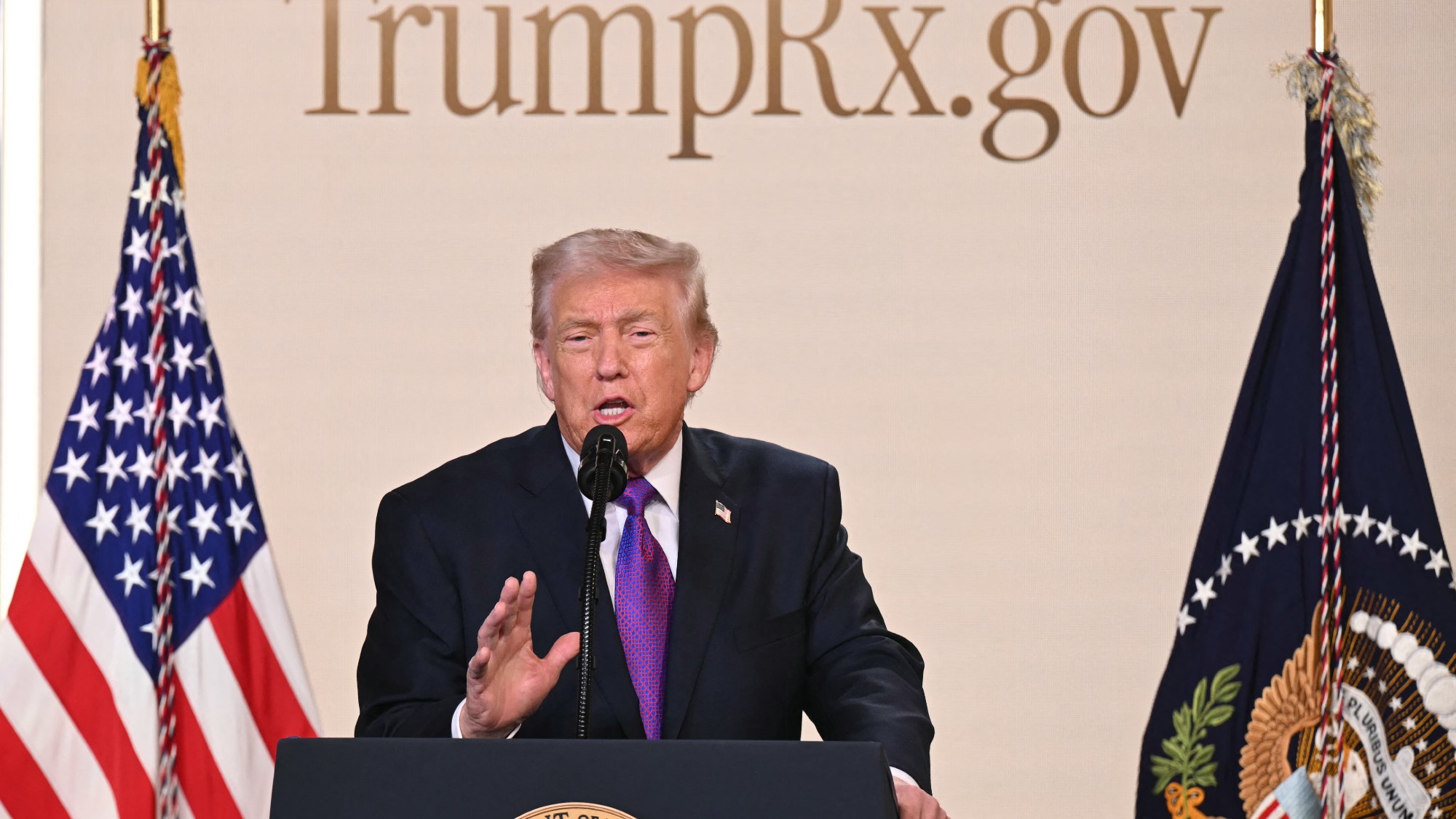Ten Things You Need to Know Today: Wednesday 13 Mar 2019
- 1. No-deal vote after MPs reject May’s Brexit
- 2. Tariffs to be cut in event of no-deal Brexit
- 3. Pope’s adviser Pell jailed for child abuse
- 4. Hammond: I’ll curb power of tech giants
- 5. India and Hong Kong join Boeing 737 Max ban
- 6. Hawking nurse struck off for poor care
- 7. California governor halts death penalty
- 8. Desperate Housewives actor charged over ‘exam cheating’
- 9. Death metal ‘does not inspire violence’
- 10. Briefing: can the woolly mammoth be brought back to life?
A free daily email with the biggest news stories of the day – and the best features from TheWeek.com
You are now subscribed
Your newsletter sign-up was successful
1. No-deal vote after MPs reject May’s Brexit
The Commons will vote today on whether the UK should leave the EU without a deal, after rejecting Theresa May’s Brexit plans for a second time yesterday. May’s proposals were defeated by a margin of 149 votes last night, pushing the country into political crisis. If a no-deal exit is rejected, MPs will vote on extending the Brexit deadline.
2. Tariffs to be cut in event of no-deal Brexit
The Government has published proposals for how it would handle a no-deal exit from the EU, ahead of this evening’s vote by MPs on that option. Under a temporary scheme, 87% of imports by value would be eligible for zero-tariff access, compared with 80% at the moment. There would also be no border controls between Northern Ireland and the Republic.
3. Pope’s adviser Pell jailed for child abuse
Cardinal George Pell has been jailed for six years in Australia for the sexual abuse of children in the 1990s. The former Vatican treasurer and close adviser to Pope Francis showed “staggering arrogance” in perpetrating “brazen and forcible” sexual attacks, a judge said. The 77-year-old will appeal the sentence.
The Week
Escape your echo chamber. Get the facts behind the news, plus analysis from multiple perspectives.

Sign up for The Week's Free Newsletters
From our morning news briefing to a weekly Good News Newsletter, get the best of The Week delivered directly to your inbox.
From our morning news briefing to a weekly Good News Newsletter, get the best of The Week delivered directly to your inbox.
4. Hammond: I’ll curb power of tech giants
Chancellor Philip Hammond will use his Spring Statement today to promise to take measures to stop big web firms such as Google and Facebook from curbing innovation and reducing consumer choice. Hammond will welcome the findings of a review commissioned by the Government, which says greater competition should be enforced in the digitial marketplace.
5. India and Hong Kong join Boeing 737 Max ban
India and Hong Kong have joined other nations including the UK, Ireland, Germany and France in suspending flights by Boeing’s 737 Max jets, following two crashes involving the aircraft within five months. The US remains defiant, saying the plane is safe, but at least 27 airlines worldwide have grounded their Max jets - more than half of the 350 in service.
6. Hawking nurse struck off for poor care
A nurse who looked after world-leading scientist Stephen Hawking for eight years has been struck off from the profession after an investigation found she had failed to give him the “care he deserved”. Patricia Dowdy, 61, faced misconduct charges including financial misconduct, dishonesty and not having the correct qualifications.
7. California governor halts death penalty
California Governor Gavin Newsom is to issue a moratorium on the death penalty, meaning none of the state’s 737 death row patients will be executed while he is in office. California has not executed anyone since 2006, in part because of a long-running legal battle over whether the lethal drugs used cause excessive pain.
A free daily email with the biggest news stories of the day – and the best features from TheWeek.com
8. Desperate Housewives actor charged over ‘exam cheating’
Desperate Housewives star Felicity Huffman is among 33 parents who have been charged with taking part in a huge exam fraud in the US. The alleged scam involved corrupt staff marking exams, or sitting them for students, so the youngsters could gain entry to elite universities. Bribes were also allegedly paid to sports coaches to accept students.
9. Death metal ‘does not inspire violence’
A new study has cast doubt on claims that fans of death metal music are desensitised to violence by the genre’s extreme content. Professor Bill Thompson of Macquarie University, in Sydney, said: “[Death metal] fans are nice people. They’re not going to go out and hurt someone.” The research is part of a decades-long investigation into the emotional effects of music.
10. Briefing: can the woolly mammoth be brought back to life?
Japanese and Russian scientists have recorded minor activity in cells taken from a woolly mammoth that roamed the Earth 28,000 years ago, marking a potential breakthrough in the quest to clone the prehistoric animal.
Researchers involved in the project claim to have taken “a significant step” towards bringing the long-extinct animals back to life, The Daily Telegraph reports, after extracting bone marrow and muscle tissue from the remains of a mammoth in Siberia.
Can the woolly mammoth be brought back from extinction?
-
 Democrats seek calm and counterprogramming ahead of SOTU
Democrats seek calm and counterprogramming ahead of SOTUIN THE SPOTLIGHT How does the party out of power plan to mark the president’s first State of the Union speech of his second term? It’s still figuring that out.
-
 Climate change is creating more dangerous avalanches
Climate change is creating more dangerous avalanchesThe Explainer Several major ones have recently occurred
-
 What’s TrumpRx and who is it for?
What’s TrumpRx and who is it for?The Explainer The new drug-pricing site is designed to help uninsured Americans
-
 10 things you need to know today: January 24, 2024
10 things you need to know today: January 24, 2024Daily Briefing Trump closes in on nomination with New Hampshire win over Haley, 'Oppenheimer' leads the 2024 Oscar nominations, and more
-
 10 things you need to know today: January 23, 2024
10 things you need to know today: January 23, 2024Daily Briefing Haley makes last stand in New Hampshire as Trump extends polling lead, justices side with US over Texas in border fight, and more
-
 10 things you need to know today: January 22, 2024
10 things you need to know today: January 22, 2024Daily Briefing DeSantis ends his presidential campaign and endorses Trump, the US and Arab allies push plan to end Gaza war, and more
-
 10 things you need to know today: January 21, 2024
10 things you need to know today: January 21, 2024Daily Briefing Palestinian death toll reportedly passes 25,000, top Biden adviser to travel to Egypt and Qatar for hostage talks, and more
-
 10 things you need to know today: January 20, 2024
10 things you need to know today: January 20, 2024Daily Briefing Grand jury reportedly convened to investigate Uvalde shooting response, families protest outside Netanyahu's house as pressure mounts for hostage deal, and more
-
 10 things you need to know today: January 19, 2024
10 things you need to know today: January 19, 2024Daily Briefing Congress averts a government shutdown, DOJ report cites failures in police response to Texas school shooting, and more
-
 10 things you need to know today: January 18, 2024
10 things you need to know today: January 18, 2024Daily Briefing Judge threatens to remove Trump from his defamation trial, medicine for hostages and Palestinians reach Gaza, and more
-
 10 things you need to know today: January 17, 2024
10 things you need to know today: January 17, 2024Daily Briefing The US strikes Houthi targets in Yemen a third time, Trump's second sex defamation trial begins, and more